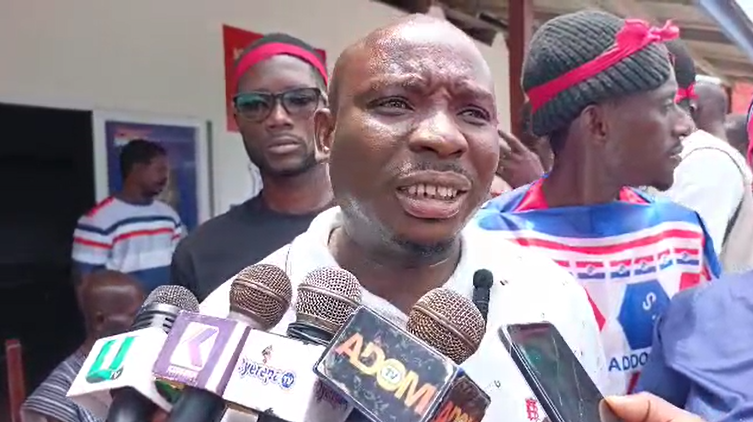The political landscape in Ghana’s Effutu Constituency has been ignited by a controversy surrounding comments made by the National Democratic Congress’s (NDC) First Vice Chairman, Chief Sofo Azorka. These comments, perceived as a direct threat to the life of the constituency’s Member of Parliament and Minority Leader, Alexander Afenyo-Markin, have sparked outrage within the ruling New Patriotic Party (NPP) and calls for Azorka’s immediate arrest and prosecution. The incident stems from Afenyo-Markin’s unannounced visit to the NDC party office during the Akwatia by-election, a move interpreted by Azorka as provocative and unwarranted interference. Azorka’s subsequent remarks, including a veiled threat of instigating a by-election in Afenyo-Markin’s constituency, have been deemed irresponsible, inflammatory, and potentially criminal.
The NPP’s Effutu Constituency branch has taken a strong stance against Azorka’s statements, characterizing them as a blatant threat to the life of their MP, who also holds the esteemed traditional title of Osahen of the Effutu Traditional Area. Ellis Otabil, the NPP’s Effutu Constituency Communications Director, publicly condemned Azorka’s words, labeling them “distasteful” and a dangerous escalation of political rhetoric. The NPP’s demand for immediate action underscores the gravity with which they view the situation, emphasizing the need to uphold the rule of law and protect elected officials from intimidation and threats. This demand for Azorka’s arrest signals a significant escalation in the political tension between the two parties, transforming a localized incident into a potential national controversy.
Former Effutu Municipal Chief Executive, Alhaji Kasim Zubeiru, echoed the NPP’s concerns, broadening the appeal for intervention to include President John Dramani Mahama, the National Peace Council, and other key stakeholders. This call for a wider response underscores the potential for Azorka’s comments to destabilize the political climate beyond the Effutu Constituency. By involving national figures and institutions dedicated to peace and reconciliation, Zubeiru highlights the seriousness of the situation and the need for a decisive response to prevent further escalation. The inclusion of President Mahama in this appeal suggests a belief that intervention from the highest level of government may be necessary to de-escalate the tension and ensure a peaceful resolution.
The central argument put forth by the NPP is that Azorka’s statements constitute a criminal offense under the Criminal Offences Act. This legal dimension adds another layer of complexity to the situation, potentially leading to a formal investigation and legal proceedings. The NPP’s insistence on legal action against Azorka demonstrates their commitment to pursuing all available avenues to address what they perceive as a serious threat to their representative and the democratic process. By framing the issue within the context of the Criminal Offences Act, the NPP seeks to move beyond political rhetoric and establish a legal basis for action against Azorka.
The incident highlights the fragility of political discourse in Ghana and the potential for inflammatory rhetoric to escalate into real-world threats. The NPP’s swift and forceful response underscores their determination to protect their members and uphold the principles of democratic dialogue. Their appeal to national figures and institutions emphasizes the broader implications of this incident for the political climate in Ghana. The call for Azorka’s arrest based on the Criminal Offences Act further underscores the seriousness of the situation and the NPP’s commitment to pursuing legal recourse.
The controversy surrounding Azorka’s comments serves as a stark reminder of the importance of responsible political discourse and the potential consequences of inflammatory rhetoric. The incident has brought to the fore the tensions that can arise in a competitive political environment and the need for mechanisms to de-escalate conflict and promote peaceful dialogue. The involvement of national figures and institutions underscores the broader implications of this local incident, suggesting the potential for a wider impact on the political landscape of Ghana. The unfolding situation will undoubtedly be closely watched as it unfolds, serving as a test of the country’s commitment to upholding democratic principles and ensuring a peaceful political process.


